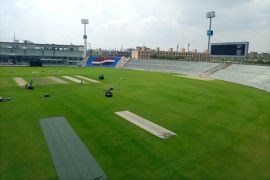Turkey’s Ministry of Food, Agriculture and Livestock has sent a latest automatic tea-processing plant to Pakistan as a gift in recognition of the country’s tea-growing efforts.
Talking to journalists on Friday, National Tea and High Value Crops Research Institute Director Dr Farrukh Siyar Hamid said the plant has arrived in Karachi and currently paperwork is being done for its release.
The plant, which has a capacity to process 400 to 500kg of tea per day, would be made operational in April next year.
The plant will be set up at the tea project site located in Shinkiari, near Mansehra. Spread over 50 acres, this is Pakistan’s first tea garden where black and green tea is produced.
The existing plant at the institute was imported from China and has the capacity of producing one tonne of black tea per day and about 100kg green tea per day.
Dr Hamid said that after a series of soil surveys carried out by the institute, 158,147 acres of land suitable for tea plantation has been identified in districts of Mansehra, Battagram and Swat. The productive and cultivable land is presently not being utilised, he said.
The institute had also carried out soil surveys in Azad Jammu and Kashmir (AJK) where prospects emerged for the cultivation of tea. However, the forest department of AJK refused to allocate land for the project, he added.
Tea crop cultivation has been experimented on farmers’ fields in different agro-ecological zones in the three districts, he said.
The efforts to promote tea cultivation received a setback when the tea garden, spread over 186 acres, and a plant were completely destroyed in Swat during the military operation against terrorists.
The tea research institute has completed testing of 14 exotic tea germplasm and identified 13 tea clones.
In addition, the institute has developed clusters at Siran, Konsh and Kunhar valleys where sixty farmers were trained to grow tea.
Responding to a question, Dr Hamid said the tea being produced in Pakistan is much liked by the Chinese and the products have the prospects to thrive along the China-Pakistan Economic Corridor.
The tea institute’s data shows that Pakistan imported 93,500 tonnes of black tea during the first six months of 2017 at a cost of Rs22 billion. The import of 450 tonnes of green tea during Jan-June 2017 period cost Rs106 million to Pakistan. The data further shows that import of tea increased by over 325 per cent in 20 years.







